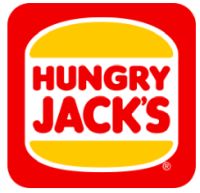There's been quite a bit in the news of late about an IP case in Australia involving the fast-food giant McDonald's and an Australian fast-food company, Hungry Jack's.

Pic Credit: Wikimedia Commons
The facts
Hungry Jack's sells a burger called the Big Jack and, if that isn't quite enough beef for you, the company offers an even bigger Mega Jack burger. McDonald's took the view that the marks Big Jack and Mega Jack are confusingly similar to two of its major registered trade marks, Big Mac and Mega Mac, and also claimed that Hungry Jack's had been guilty of misleading advertising. Mcdonald's therefore sued Hungry Jack's for trade mark infringement.
An intention to confuse...or just plain cheekiness
At the hearing, Hungry Jack's marketing officer acknowledged that there had been an 'element of cheekiness' when it came to the choice of name, saying, 'I was aware that the name would likely be perceived as a deliberate taunt of McDonald's.'
But this is Australia / But heck mate, we're Australian
The marketing officer went on to suggest that 'taunts' of this nature are common in the fast-food business. Which, of course, reminds us that when it comes to cricket, the Aussies know a thing or two about taunts being masters of 'sledging.' For the benefit of readers who simply refuse to engage with any form of sporting contest that is measured in days rather than minutes, sledging has been described as 'the act of one sports player insulting another during a game in order to make them angry'.
The court's finding – no intention to mislead
Judge Burley held that there would be no consumer confusion, making the point that no evidence of deception or confusion had been put forward. The judge said this, 'I am not persuaded that Hungry Jack's fashioned the name Big Jack for the purpose of misleading consumers.'
Judge Burley also made reference to a recent Australian decision, Self-Care IP Holdings Pty Ltd v Allergan Australia Pty Ltd, where the court said that the reputation of the registered trade mark (here Big Mac) is not relevant to assessing similarity with the other trade mark (here Big Jack).
Mere echoes
The judge categorised this matter as one where the Australian company had wanted to compete with McDonald's using a name that has 'echoes' of Big Mac, yet is still 'recognisably different'. The same applied to Mega Jack and Mega Mac.
The test to be applied
The court applied the test of a notional consumer, one who 'would not approach either of the trade marks with preconceptions based on their experience with either McDonald's or Hungry Jacks's or any of their branding'.
The judge held that trade marks were not confusingly similar because the word 'Big' is descriptive and therefore relatively unimportant, whereas the names Mac and Jack are phonetically different, with Jack being a well-known name, and Mac being an unusual name or abbreviation. The judge saw fit to say that consumers are more likely to recall differences in first names, citing Harry and Barry, Ryan and Brian, and Ronald and Donald. We get the point!
A separate consumer law issue
In addition to the claim of trade mark infringement, there was also an issue of misleading advertising and consumer law. This is related to the fact that in its advertising Hungry Jack's made the claim that the Big Jack burger contains '25% more Aussie beef' than the Big Mac. This, said McDonald's, breached Australian consumer law. Experts established that Hungry Jack's contained 'significantly less' than the 25% additional beef that was advertised and, as a result, McDonald's claim was successful.
A last word
Kudos to the Guardian newspaper for crafting an inspired sub-heading in its article on this case: "Legal bunfight."
The content of this article is intended to provide a general guide to the subject matter. Specialist advice should be sought about your specific circumstances.
We operate a free-to-view policy, asking only that you register in order to read all of our content. Please login or register to view the rest of this article.


